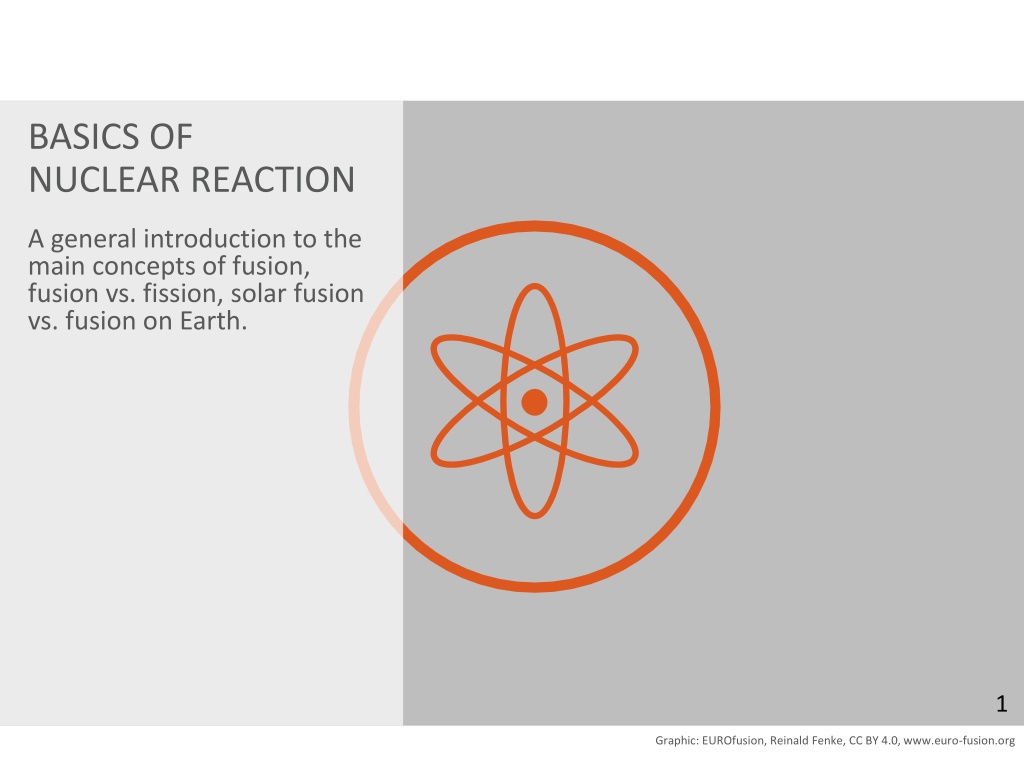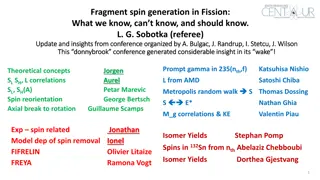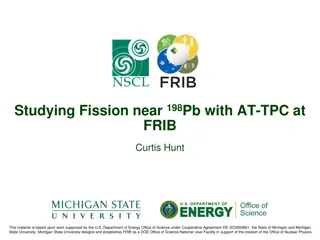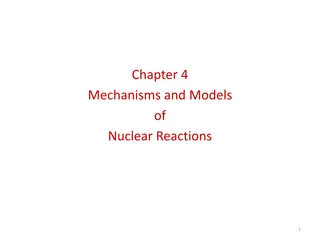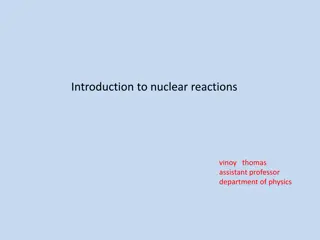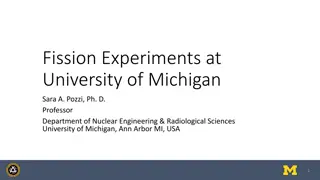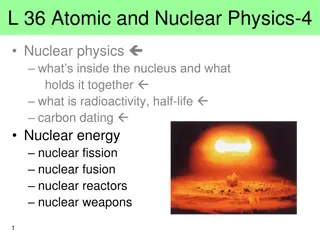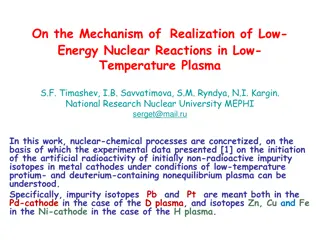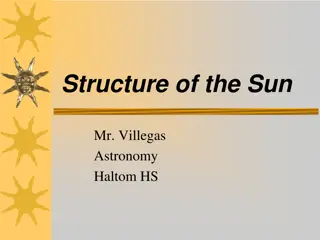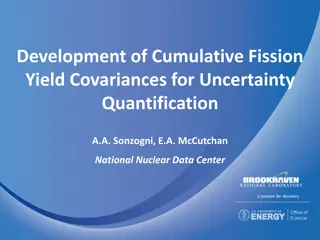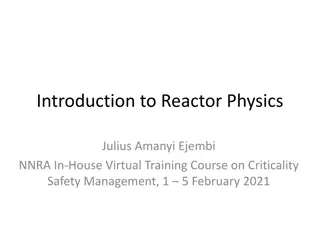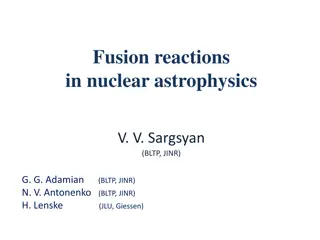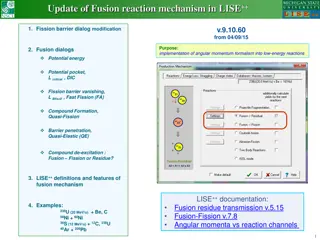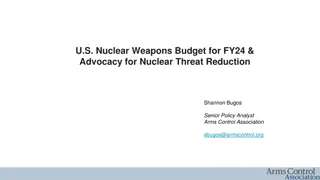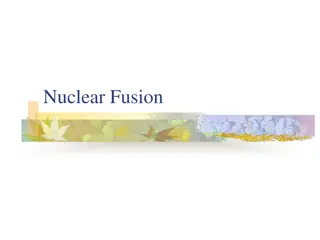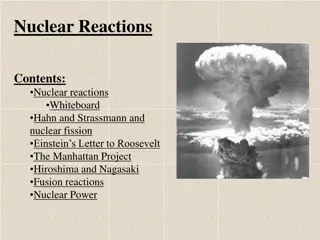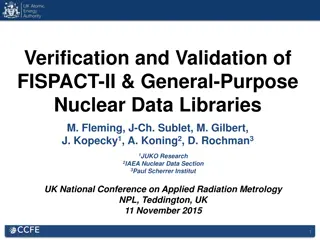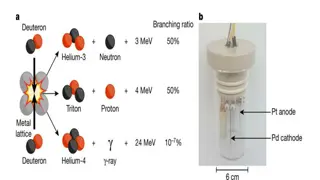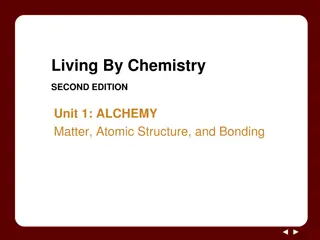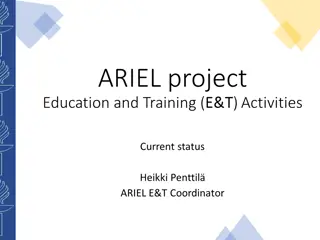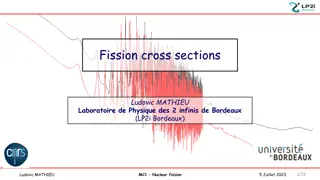Understanding Nuclear Reactions: Fusion, Fission, and Energy Production
Explore the fundamental concepts of nuclear reactions, including fusion and fission, the conversion of mass into energy, and the role of fusion in energy production. Discover how the sun and stars shine through fusion reactions and how we can replicate this process on Earth using isotopes of hydrogen.
Download Presentation

Please find below an Image/Link to download the presentation.
The content on the website is provided AS IS for your information and personal use only. It may not be sold, licensed, or shared on other websites without obtaining consent from the author. Download presentation by click this link. If you encounter any issues during the download, it is possible that the publisher has removed the file from their server.
E N D
Presentation Transcript
BASICS OF NUCLEAR REACTION A general introduction to the main concepts of fusion, fusion vs. fission, solar fusion vs. fusion on Earth. 1 Graphic: EUROfusion, Reinald Fenke, CC BY 4.0, www.euro-fusion.org
m1 WE KNOW THAT TWO TYPES OF NUCLEAR REACTIONS EXIST: FUSION & FISSION 2 Graphic: EUROfusion, CC BY 4.0, www.euro-fusion.org
m1 m1 FUSION FISSION Two small nuclei bind making a bigger one. One large nucleus breaks up into smaller ones. 3H 2H 235U 236U 92Kr 141Ba n + 14.1 MeV 4He + 3.5 MeV 3 Graphic: EUROfusion, Reinald Fenke, CC BY 4.0, www.euro-fusion.org
m1 FUSION IS AN ENERGY SOURCE The resulting atom is lighter than the initial ones. Where has the mass gone? It is converted into energy, according to the famous equation from Albert Einstein: E=mc2 In other words: Energy = mass x speed of light squared 4 Graphic: EUROfusion, Reinald Fenke, CC BY 4.0, www.euro-fusion.org
m1 FUSION WORKS The sun and the stars shine thanks to fusion reactions taking place in their core. 5 Image: NASA
m1 HOW CAN WE DO THE SAME ON EARTH? The Sun fuses Hydrogen (H) nuclei into Helium (He). On Earth, the most efficient approach is to use two isotopes of Hydrogen: Deuterium (D) Tritium (T) Proton 1H 1 Deuterium D Tritium T 6 Image: EUROfusion, CC BY 4.0, www.euro-fusion.org
